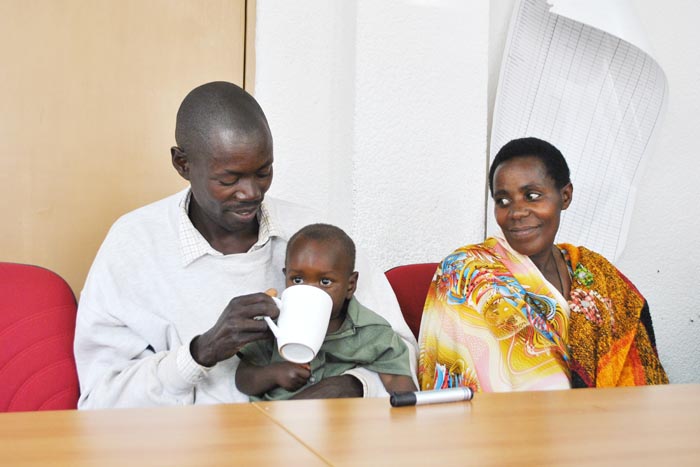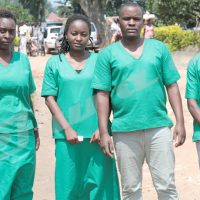Burundi is showing great progress in achieving the ambitious worldwide goal of 120 million more women and girls with access to contraceptives and information about family planning by 2020.–By Diane Uwimana
Burundi aims to increase the number of people using modern contraceptives to 644. 628 by 2015 and has made significant progress so far. According to the 2013 ‘Family Planning 2020 Progress Report’, 26,000 additional women and girls were using modern contraceptives in Burundi, compared to the previous year. The report estimates that the contraceptives have averted 87,000 unwanted pregnancies and prevented 557 maternal deaths in 2013.
Papiace Nzimenya (48) has five children and lives in Kayanza province. He testifies about the advantages of modern contraceptives. “Thanks to the community workers and broadcasting programs, my children are safe and healthy. My wife and I agreed to stop our procreation. We chose a vasectomy and tubal ligation for me and my wife.”
Asterie Bimenyimana (38) is Nzimenya’s wife and shares her husband’s view. “It is not easy to give birth while you still have another small baby. It caused malnutrition, since we don’t have enough fields to cultivate.”
Frederic Bizimana, 48, and Frediane Sinzumunsi, 35, a couple with six children, acknowledge the great advantages of using modern contraceptives. “When we delivered our second kid, the first was a year and a half old. It was hard to survive because the mother was obliged to stay at home. Now, we agreed to end our procreation,” says Bizimana.
Increasing access to essential reproductive health services
Burundi has committed to increase the rate of women and couples using contraceptives to 40% by 2015 and 50% by 2020. Chantal Inamahoro, the country representative of Pathfinder, a leader in sexual reproductive health, indicates that an increasing number of women and girls know the importance of using contraceptives. “In September and October, we distributed more than 1.747 injectable, 267.361 condoms, 19.980 pills, and 109 contraceptive implants,” enumerates Inamahoro.
Since Pathfinder started working in Burundi in 2007, the contraceptive prevalence rate rose in Kayanza from 7% to nearly 30% in 2013 while in Muyinga province it went from 12% in 2007 to 35% in 2013.
Dr Juma Ndereye, Director of the National Reproduction Health Program in the Ministry of Public Health, is proud of the progress Burundi has made in family planning. “The contraceptive prevalence rate rose from 2, 9% in 2000 to 31% in 2013, we hope that we will achieve the aspired rate of 50% by 2020”, says Dr Ndereye.
By investing in family planning, Burundi is taking positive steps to improve the health and wellbeing of girls and women and increase the opportunities for their future.
“The country is committed to increase the annual government allocation for contraceptives by 10% each year from 2015 to 2020, increase access to services by establishing health posts for family planning in geographically remote areas, including clinics run by religious institutions and scaling up community based services by training all health promotion professionals”, Dr Ndereye points out.
———————————————————————————————————————————-
Family Planning 2020 is a global partnership that supports the rights of women and girls to decide, freely, and for themselves, whether, when, and how many children they want to have.




















 IWACU Open Data
IWACU Open Data

